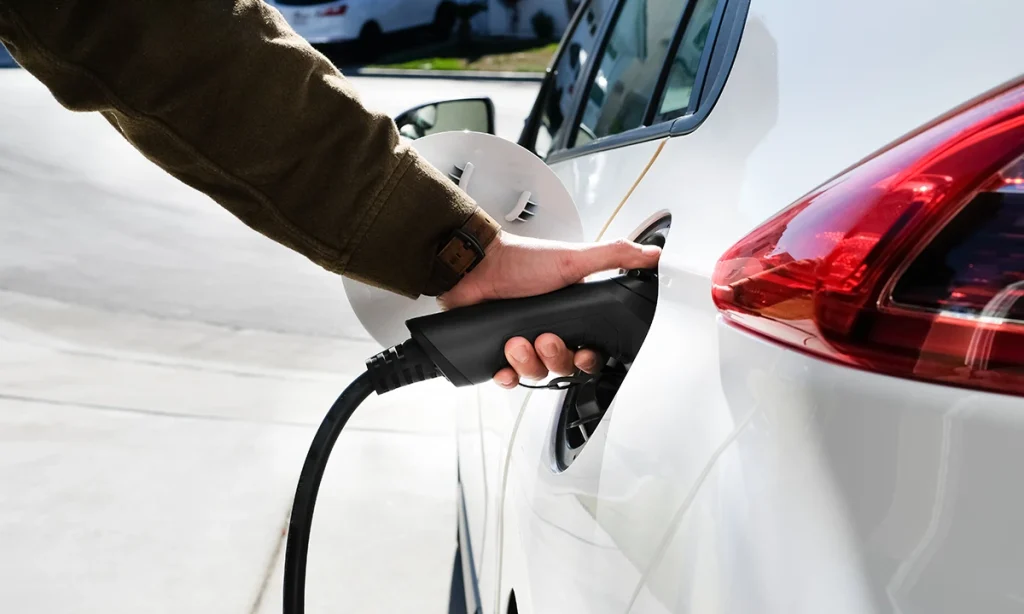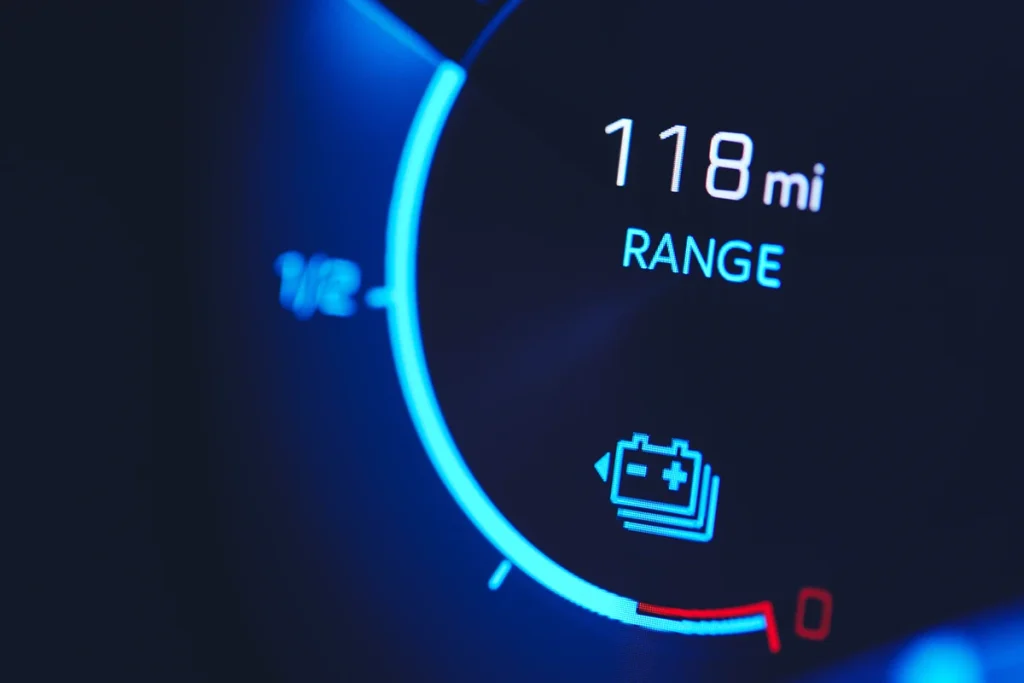As a clean and environmentally friendly mode of transportation, electric vehicles have quickly grown in popularity, raising questions about their financial consequences.
Understanding the typical cost of charging an electric car is crucial for both potential buyers and current owners as the globe moves towards a greener future. Examining the nuances of pricing, power rates, and charging infrastructure will clarify the financial implications of driving emissions-free, whether you’re thinking about making the move to electric or trying to minimize your charging expenditures.
On average, several things affect how much it costs to charge an electric car. Firstly, the cost of power plays a huge role, which can differ depending on your place and the time of day. Additionally, the charging method you choose also influences the general cost. Charging at home using a residential connection is usually less expensive than using public charging stations.
The cost of charging your car also depends on the battery’s efficiency and capacity because larger batteries require more power. Remember that a few charging networks might also demand a membership or charge extra.
Considering those factors will enable you to estimate the cost of charging an electric car, even though providing an average cost is challenging.
| Ev Make And Model | Energy Required To Change Battery (Kwh) | Cost To Charge Battery | Range Of Distance (Miles) | Charging Cost Per Mile (Cents) |
| Nisan Leaf S Plus | 64 kWh | $ 9.70 | 210 Miles | 4.5 Cents |
| Tesla Model 3 Rwd | 69 kWh | $ 10.45 | 270 Miles | 3.83 Cents |
| Ford Mustang Mach-E | 75 kWh | $ 11.64 | 222 Miles | 5.21 Cents |
| Audi E- Tron Quattro | 95 kWh | $ 12.84 | 238 Miles | 5.29 Cents |
What factors affect how much it costs to charge an electric car at home?
You need a reliable electric source to recharge your EV (electric vehicle). Most companies also specify their charging values (watts or volts). You can use two sources to charge your EV: charging stations and your home charger. Both have different charges. Here are a few factors significantly influencing the cost of charging an electric vehicle at home.
Your Electricity Source
The cost of charging an electric car depends significantly on the energy source. The cost of energy changes based on where you live and who your provider is. In some places, power prices can change throughout the day, with higher prices during peak times.
The type of electricity used can also change how much it costs. For instance, regions relying heavily on renewable energy sources typically have lower electricity prices, making EV charging more cost-effective.
Your Ev’s Battery Size
You’ll pay more to charge your electric vehicle if its battery is larger than average. Kilowatt-hours (kWh) are the unit of measurement for battery power in electric vehicles (EVs). It would cost more to charge a big battery because it would take more energy.
You must consider your driving style and balance battery size and range to ensure that you have sufficient power without incurring excessive charging costs.
The Type Of Ev Charger You Use
The type of charger utilized is another factor that impacts the cost of charging an electric vehicle. There are exclusive categories of chargers, from Level 1, which uses a popular household outlet, to Level 3, also called DC fast charging.
Level 1 chargers are the slowest but usually the most expensive, while Level 3 chargers provide a quick charge but are more expensive. The charging velocity affects the overall charging time, which may, in a roundabout way, affect the price if charging periods occur during peak energy pricing hours.
Region On The Globe
The biggest thing that changes the cost of electricity is where you live. Because of rules, taxes, and infrastructure costs in the area, energy prices are often a problem. Some areas may offer benefits or decreased energy rates for EV owners to promote the adoption of electric vehicles.
The charging cost and the power used are mostly denoted in kilowatts per hour (kWh). These are the two major contributors influencing the total cost of charging your vehicle. Depending on the software firm and the area, electricity prices change.
Time Of The Day
The value can also be affected by when you charge your EV. As referred to earlier, power charges can vary based on the time of day. Some software suppliers offer time-of-use (TOU) plans, which decrease rates in the course of off-peak hours, encouraging users to charge their EVs throughout those times.
With these lower rates, EV owners can save cash on charging expenses. Planning your charging classes for the duration of off-top hours may benefit both your areas and the general grid’s performance.
How Long Does It Take To Charge An Electric Car?
The battery capacity, depletion rate, and charger performance affect how long it takes to charge an electric vehicle. Level 1 chargers, using a current family connection, are the slowest, commonly offering about 2–5 miles of variety per hour of charging.
Level 2 chargers, commonly found at homes and public charging stations, can provide a rate of 10–30 miles of range per hour. Level 3 DC fast chargers provide the fastest charging speeds, up to 200 miles of range in a half-hour.
Understanding the charging abilities of your vehicle and the charger you’re using is essential for making efficient plans for your charging classes.
Tracking Your Actual Ev Charging Usage And Costs
As the popularity of electric vehicles grows, you must know the best way to charge your electric vehicle to save energy. You can get an idea of your car’s electric consumption if you properly keep a record of the kilowatt-hours used during each charging session.
The price of a vehicle also gives you an insight into how much it will cost you to charge. The previous records also indicate the best way to charge an electric car to save a lot of electricity.
Keeping track of how much it costs to charge your electric vehicle demonstrates your environmental concern and financial savvy. Do this to maximize electric vehicle efficiency.
Comparing EVs With Ice Vehicles: What Does It Cost To Fuel An ICEs?
Increasing electric vehicle control has led people to consider hybrid vehicles (ICEs). The fuel cost for both of these vehicle categories will be a significant factor in this comparison. ICE vehicles operate on gasoline or diesel, whereas EVs are powered by electricity. ICE car fuel costs are needed to calculate EV financial benefits. This brief examines the factors and challenges of estimating ICE fuel costs.
| Vehicle Category | EV Charging Cost Per Mile (Cents) | ICE Fueling Cost Per Mile (Cents) |
| Compact Hatchback | 2022 Nissan Leaf: 4.85 Cents | 2022 Toyota Corolla Hatchback: 9.5 Cents |
| Compact Sedan | 2022 Tesla Model 3: 3.99 Cents | 2022 Honda Civic LX: 9.1 Cents |
| Mid-Size SUV | 2022 Ford Mustang Mach-E: 4.9 Cents | 2022 Kia Telluride AWD: 16.2 Cents |
| Luxury Crossover SUV | 2022 Audi e-tron: 5.84 Cents | 2022 Porsche Macan: 20.0 Cents |
Cost per charge or tank for some popular electric vehicles and similar cars
Maintenance And Upfront Costs
When estimating the standard price of charging an electric vehicle, it is essential to remember the upfront rates and renovation expenses. This includes the installation of home charging stations, which may require professional electrical work. Furthermore, positive EV models have vehicle-specific rates related to their unique charging necessities.
These electric vehicles are cheaper to fix and repair as compared to gas vehicles. Electric vehicles have fewer shifting parts and do not require oil changes or everyday maintenance on components such as spark plugs or timing belts.
Some electric cars come with a Level 1 charging cable that can be plugged into a stylish household outlet, but it costs more and charges slower. If you need to charge your car faster, you can install a Level 2 charging station, which requires professional electrical work and may cost more.
Tips For Reducing Charging Costs
There are multiple techniques you could use to lower your prices. Charging during off-peak hours, when power rates are lower, can lessen expenses. Free charging Stations, which can be regularly available at favorable locations or via unique networks, can also help limit charges.
Maximizing power efficiency by training eco-riding techniques and minimizing unnecessary energy intake can also result in long-term financial savings.
- Explore Time-Of-Use Pricing
Take advantage of off-peak hours while power rates are lower. Check with your utility issuer to learn about their time-of-use pricing plans. You may save money on your power bill by charging your devices during these periods.
- Utilize Free Charging Stations
Look for free charging stations in your nearby area. Some groups, parking lots, or public spaces offer free charging for electric vehicles or other devices. Utilizing these stations will assist you in reducing charging expenses, especially while you’re out and about.
- Join Charging Networks
Some charging networks give their customers discounts or even free charging. Research and join such networks to access their charging stations and experience value-saving blessings.
- Invest In A Smart Charging System
Consider installing an intelligent charging device at home. These structures let you schedule and manipulate charging instances, optimizing power usage and reducing costs. You can program your devices to run during off-peak hours or when renewable power sources are most abundant.
- Practice Eco-Driving
Use eco-driving to save power and extend your electric vehicle’s battery life. Power consumption can be reduced by smooth acceleration, maintaining a constant velocity, and avoiding unnecessary idling, saving money on charging costs over time.
- Minimize Standby Power
Unplug or turn off an item when not in use to prevent it from consuming electricity. Many electronics still use power even when not charged or used. You can eliminate those masses and lower your universal power consumption by disconnecting them from the power supply.
- Consider Energy-Efficient Devices
When purchasing new devices, opt for electricity-efficient models. Look for charging cables, electricity adapters, and devices with electricity-saving capabilities. These devices can limit electricity waste throughout charging and help decrease your charging charges over the years.
- Monitor And Track Energy Usage
Keep an eye on your charging behavior and reveal your energy consumption. This ability lets you discover any useless power usage and make changes. Some apps and devices offer real-time energy monitoring, allowing you to optimize your charging practices.
Conclusion
The cost of charging an electric-powered car can vary appreciably depending on various factors. Always consider the price of electricity, the size of the car’s method of charging, the type of charger, the region and the time of day. While determining the precise average fee can be challenging, keeping these factors in mind will help you accurately predict charging expenses.
The type of charger used also affects the overall cost. Level 1 chargers are slower but typically more expensive because they use a standard household outlet. Level 3 chargers, on the other hand, offer faster-charging rates but might have more expensive installation fees. Selecting the correct charger is crucial to properly managing charging time and costs.
Power delivery and battery size are essential when recharging an electric car at home. Energy costs can vary depending on the utility company and location; areas that frequently use renewable electricity typically have lower costs. Large batteries also require more energy, which leads to higher charging fees.
Remembering the advance fees and renovation costs when calculating the general fee is critical. Depending on the EV model and the infrastructure of your home’s electric power supply, installing a home charging station may also require qualified electrical work. However, compared to traditional gasoline-powered motors, electric vehicles typically have lower repair costs.

